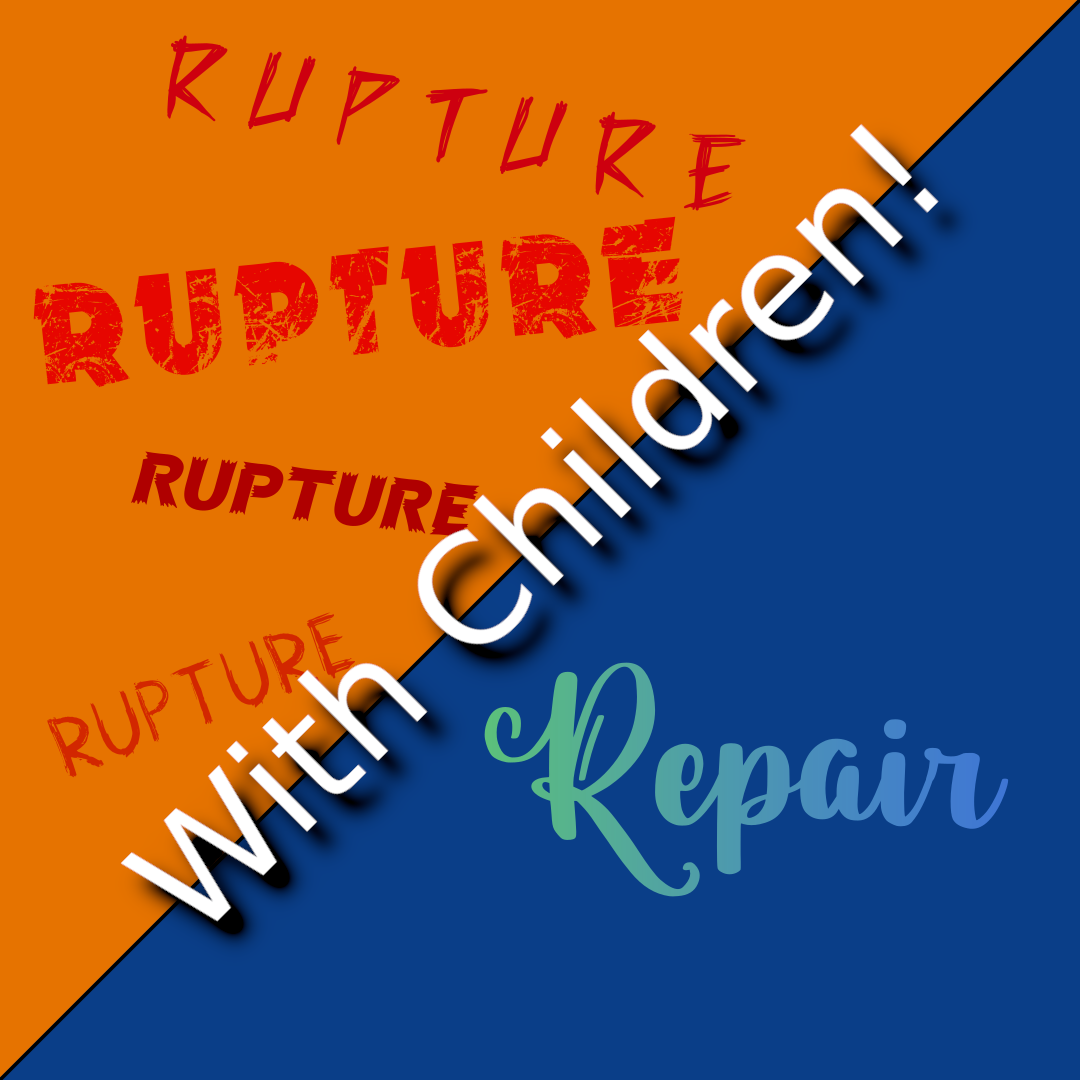Rupture/Repair: Talking with Kiddos
Being a kid these days can be very tough. From increased expectations from our society, social media, trying to fit in, TikTok, and so on, there are a lot of pressures out there for a kid of any age. Parents? Yeah, we have pressure too! And a lot of it. Our job, making ends meet, parenting, relationships, etc. The list can go on and on. So what happens when we have a rupture with our kids? What is the expectation? Let’s have a very honest conversation.
Our culture is based on hurry up! We need to get things done fast! Kids at school have their pressures and we parents have ours, and when the fallout from those pressures meets, it can get ugly and nasty. Parents will lose their tempers and kids will lose their tempers and lash out. Parents can lash out. Kids can shut down and disengage. It’s a tough moment to navigate.
Let’s start with the parent. We have a big influence on our children and it’s our responsibility to lead the way.
When we come to our children angry, frustrated, and irritable, we are dysregulated, then we may not be putting our best self forward and can make the situation worse. Let me give you an example:
You have already had a busy day. You had to get the kids up and going for school and get yourself to work. Work has been stressful and you can feel the anxiety and stress building all day. You wish you could just have some time to relax and get yourself centered and have some “me” time. We all need “me” time. The day ends and you have to pick up the kids and get them to after-school activities! HURRY! HURRY! HURRY! You don’t get to wind down until after dinner and you still may have to fight the kids to get their chores and homework done! When will it end?! And you still have to get yourself to bed! GOOD GRIEF! You are dysregulated!
What does that mean, dysregulated? Let’s keep it simple. This means that a different part of your nervous system and brain have been utilized rather than being in a state of safe and social. Safe and social is that part of your nervous system that you use to engage with others and feel safe and have the opportunity to connect with others. Regulation. When you are irritable and frustrated, you are in the sympathetic part of your nervous system and this activates the fight or flight system. Usually, we fight. You are not connected with people and you did not feel safe and connected. What does this mean for you when you are engaging with your children? Another great question.
You can give your dysregulation to your kids and they can give theirs to you. Yup, your kids may feel the same way but don’t have the years of experience to help them understand what is happening and how to make it better or how to share it with you in a healthy way. You may not know this either. In this moment, your dysregulation meets your child, rupture is possible and usually occurs. Neither participant realizes what happens and you end up in an argument and someone getting their feelings hurt or a power struggle continues until a significant rupture occurs.
We’ve seen how the rupture can happen and now we need to look at the repair part of the process. Again, ruptures are going to occur because we are human and imperfect. Accepting this concept and being able to minimize it goes a long way. Now the repair.
Kids are adults in training. As parents it is our responsibility to help them learn how to engage with others in healthy ways and, in this case, this means being the one who teaches repair.
After the rupture, it is important to regulate yourself and get to a place where you can engage your kiddo in a calm state so you can communicate clearly and without becoming dysregulated again. This is your role as a teacher, role model, and parent. It’s not easy sometimes but necessary. We need to show the kiddos that we can be angry with someone and still have a relationship without turning it into a lifelong battle with others.
Once you are regulated, give some thought to what might be going on with your child as far as their pressures, daily expectations, and what kind of day they may have had. These are all things you should consider in yourself as you begin thinking about how to repair with your child.
Up Next! The rupture and repair conversation!

Leave a Reply